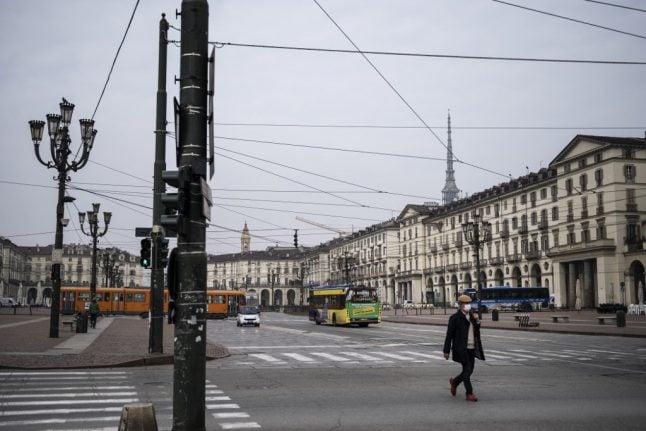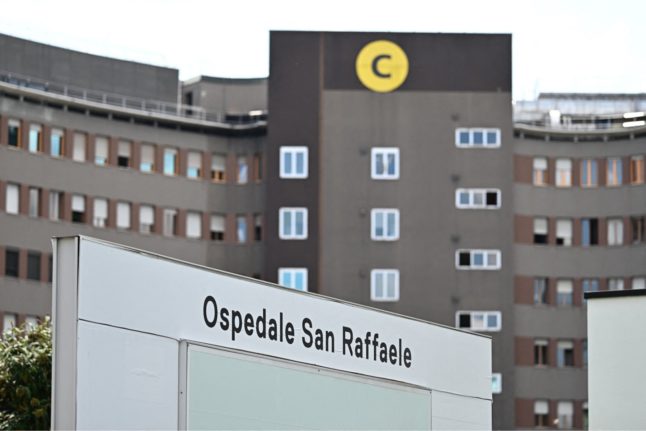HEALTH
Covid-19: Italy reports new record daily number of cases as national curfew begins
Authorities reported almost 38,000 more people had tested positive for Covid-19 in Italy in the past 24 hours, as the country's delayed night-time curfew is set to begin on Friday night.
Published: 6 November 2020 17:46 CET

Central Turin on November 6th as new restrictions began in the surrounding Piedmont region- Photo: AFP
Italy on Friday reported 37,809 new coronavirus infections over the past 24 hours, the country’s highest ever daily tally, the health ministry announced.
The figure was more than 3,000 more than Thursday’s tally of 34,505.
There were 446 Covid-related deaths, one more than the 445 the previous day.
While the number of tests carried out remains high, the percentage of swabs coming back positive has risen to 16 percent.
The northern region of Lombardy remained the hardest-hit area, with 9,934 new cases today. Neighbouring Piedmont was the second-worst affected, with 4,878 more cases.
The two regions, along with Valle d'Aosta and Calabria, were declared 'red zones' and put under a form of lockdown once again as new rules came into force on Friday.
In red zones, restrictions on movement resemble those imposed earlier this year during a severe national lockdown, with residents' movements curtailed further.
The entire country faces a nighttime curfew from 10pm to 5am, as a raft of new rules come in under Italy's latest emergency decree.
Curfew begins on Friday night, not Thursday as originally planned, after authorities pushed back the new restrictions
Though Italy's tough spring lockdown was widely supported, there was anger and confusion after the new measures were announced on Wednesday.
Despite being Italy's worst-hit region, local officials in Lombardy objected to being classified a red zone, with the governor calling the new rules “a slap in the face”.
Red zone Calabria said it would contest the government's decision.
Health Minister Roberto Speranza on Friday defended the new three-tier restriction system and hit back at criticism from regional governors.
“If we don't bring down the (contagion) curve, healthcare personnel won't be able to cope with the shock wave,” Speranza said in an address to parliament's lower house. “There's no other road to take.”
He added that the regions had been “fully involved” in the development of the tiered system.
“The 21 monitoring paramters used were agreed on with the regions at two meetings, and the reference parameters have been used for 24 weeks without the regions making any objections,” he said.
The head of the infectious diseases department at Milan's renowned Sacco hospital, Massimo Galli, told reporters Friday he was “alarmed” and had been
ever since the end of Italy's first lockdown in May.
“I've always confirmed that you have to keep on high alert to avoid the return of problems,” Galli said.
“I'm sick of saying the same things, like the voice screaming in the desert without any acknowledgement.”
Italy was the first European country to be hit hard by the coronavirus pandemic in March, and the government imposed a more than two-month quarantine
that battered its already struggling economy.
Infection rates slowed over the summer but, as in other parts of Europe, the virus has surged once again in recent weeks.
Find all of The Local's latest coronavirus updates here.
Url copied to clipboard!


 Please whitelist us to continue reading.
Please whitelist us to continue reading.
Member comments